Powering an Energy Secure Future for Benin
Benin, a West African country nearly the size of Pennsylvania, has in recent years pursued economic reforms that have spurred strong economic growth and nationwide infrastructure improvements. Despite strong economic growth, per capita consumption of electricity in Benin is among the world’s lowest because of limited access to and availability of electricity for the country’s 14.2 million people, with deep disparities between urban and rural areas. Approximately one-third of Benin’s population has access to electricity while only 18 percent of people living in rural communities have access to power. Those with access to electricity often face outages and unstable voltage.
In 2015, MCC partnered with the Government of Benin to implement the $391 million Benin Power Compact, to strengthen power sector regulation and utility operations, increase grid capacity and reliability, attract private sector investment into solar power generation and increase access to electricity for rural and underserved communities through off-grid solar power solutions.
Many businesses, schools, households, and communities are now benefiting from more reliable and affordable access to power. All told, the compact is projected to benefit more than 11 million people over the next 20 years.
Photo: Andrew Ladson, MCC
Energy = Growing Benin’s Economy
Improving the reliability of electricity in Benin required investments in the capacity of the national electrical grid, especially in the economic capital of Cotonou, as well as areas of northern and central Benin.

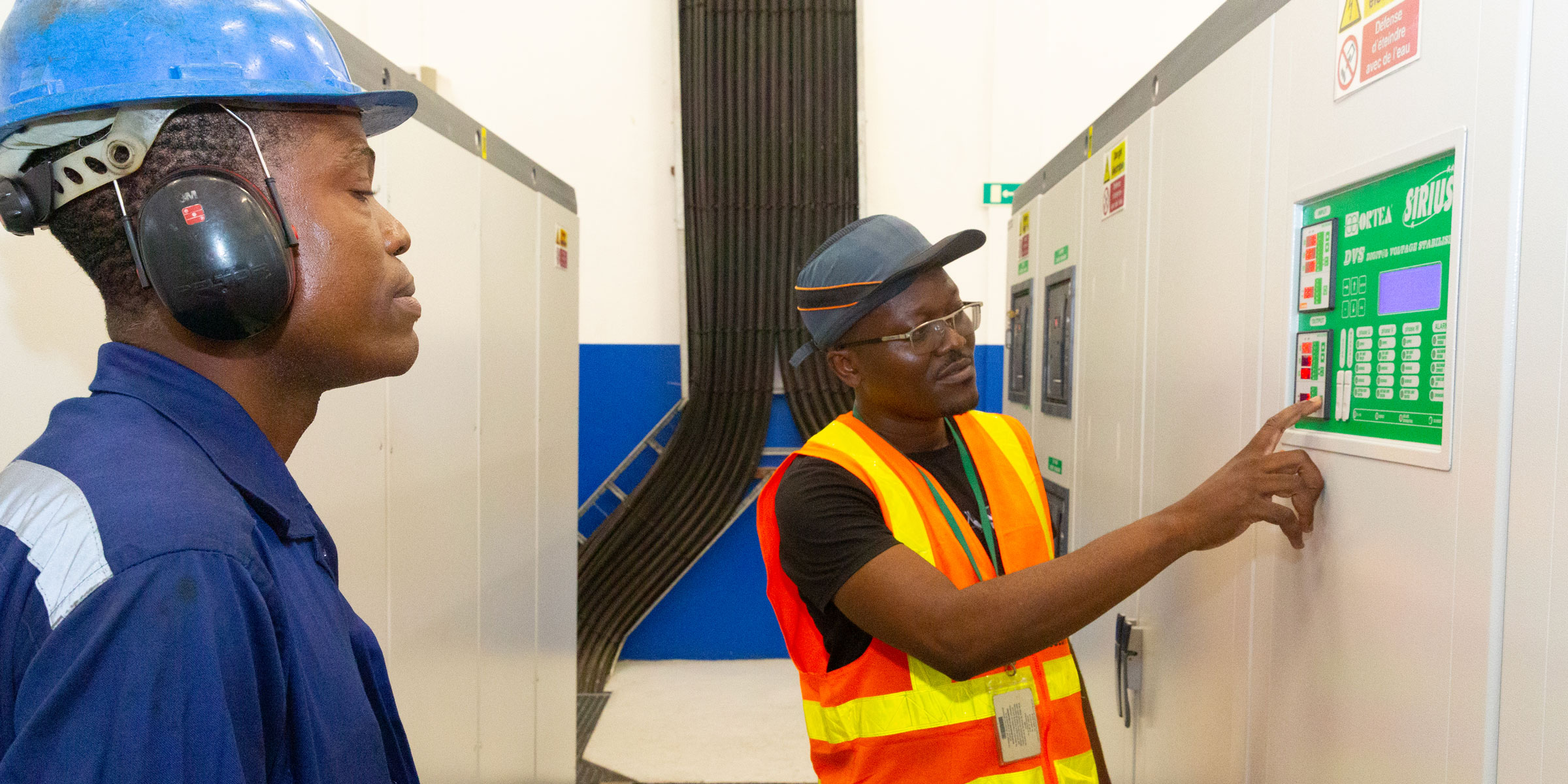
Andrew Ladson, MCC
Companies in Benin like Soberra Brewery rely on uninterrupted, reliable power.
MCC tripled the capacity of Benin’s national power grid through the construction or rehabilitation of 19 substations and nearly 546 miles of new or upgraded power lines. In addition, MCC built a new national dispatch center for power distribution, connecting 41 substations nationwide to improve electricity reliability for millions people.
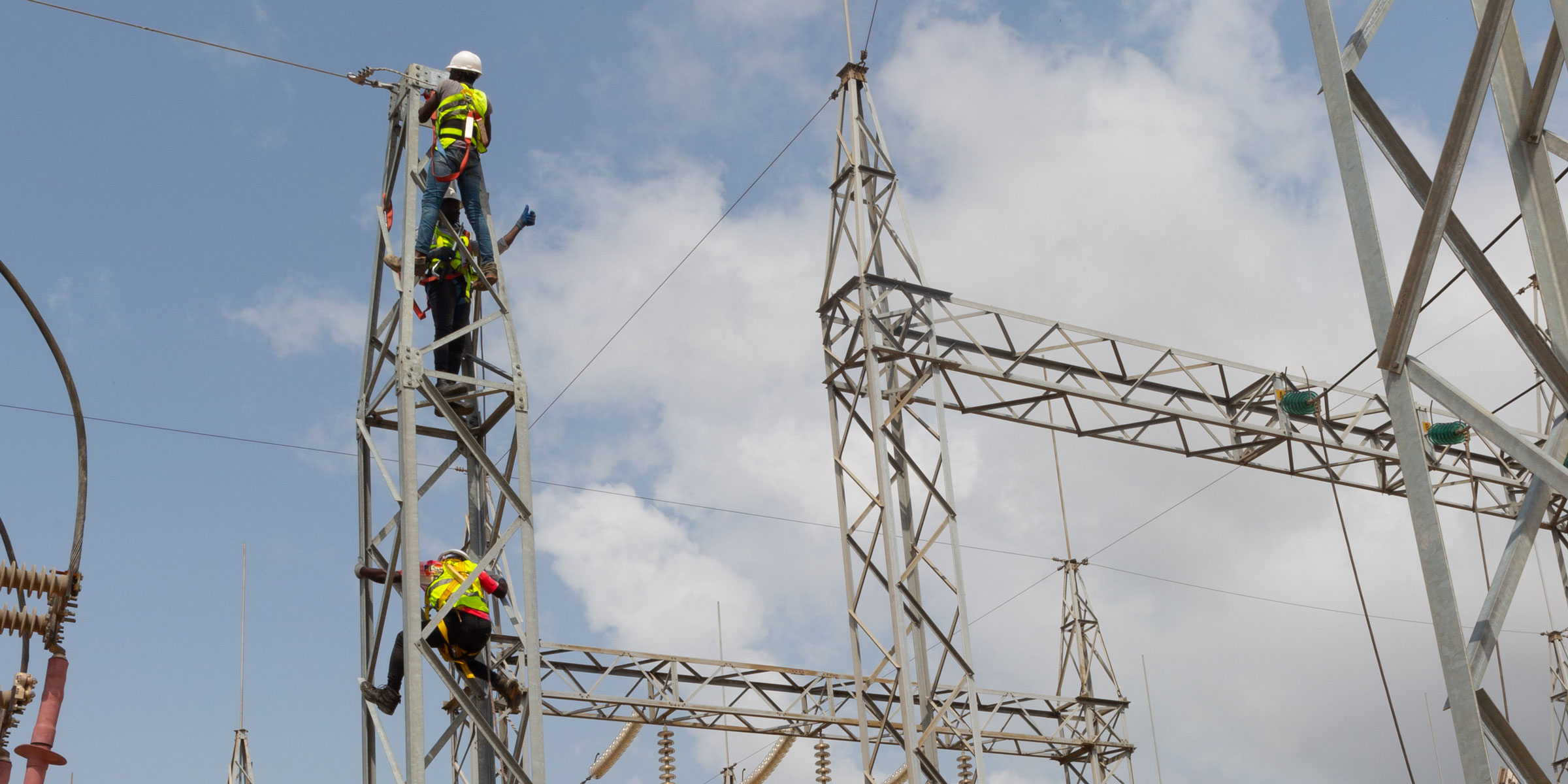
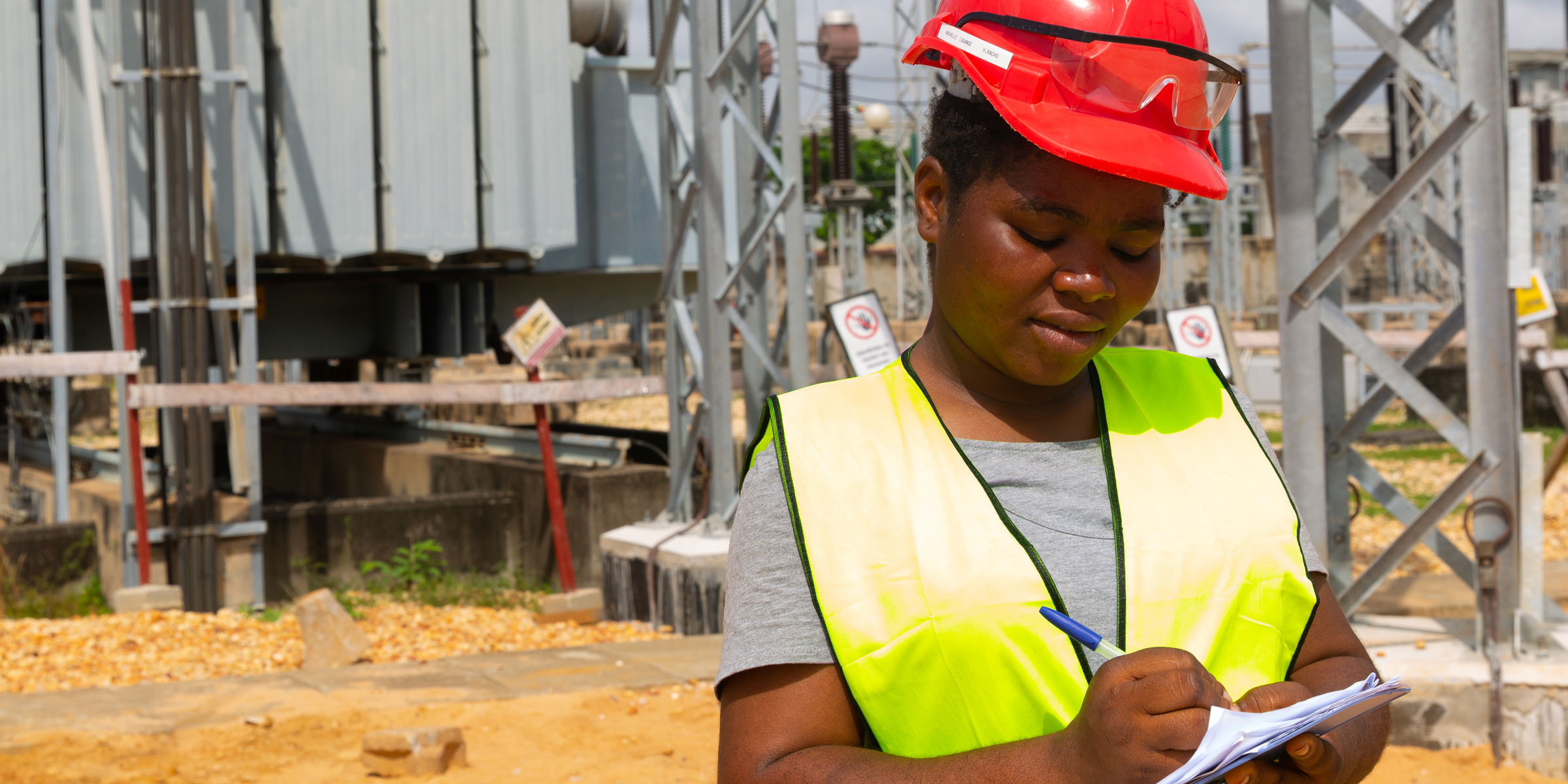
Andrew Ladson, MCC
Workers at the Vedoko Electrical Substation in Benin.
Energy = Connectivity
Nearly two-thirds of Benin’s population of 14.2 million people does not have electricity. MCC has helped close this gap by supporting sector reforms and investing in public-private partnerships.
MCC paved the way for private investment in off-grid power systems in Benin by supporting a national policy, strategy, master plan and regulatory framework for off-grid electrification. These reforms, the first of their kind in West Africa, gave private companies the confidence to invest in providing renewable power systems to unserved areas. MCC multiplied the impact of its $19 million in grant funding by leveraging another $30 million in this private investment in off-grid power systems.
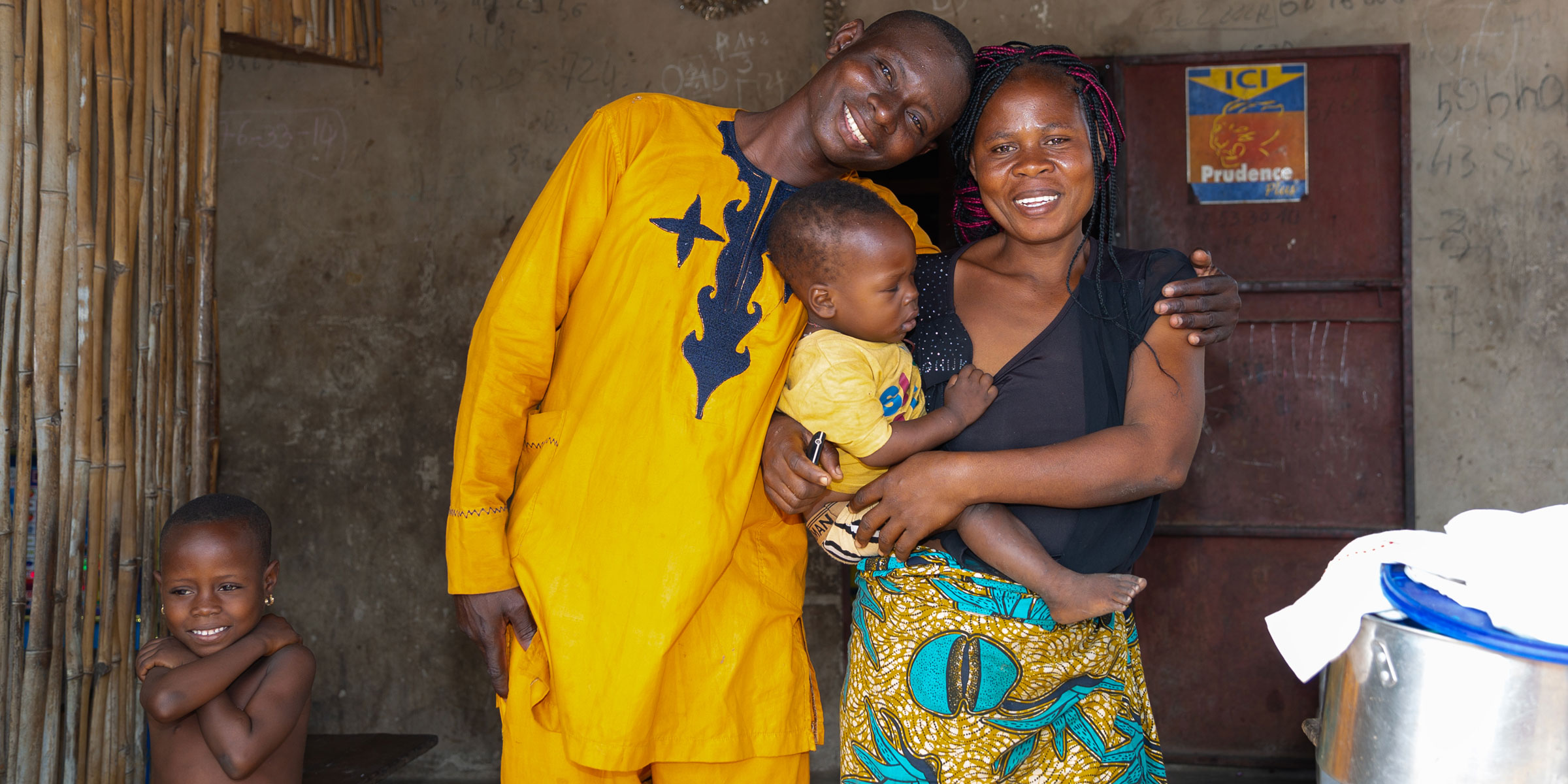
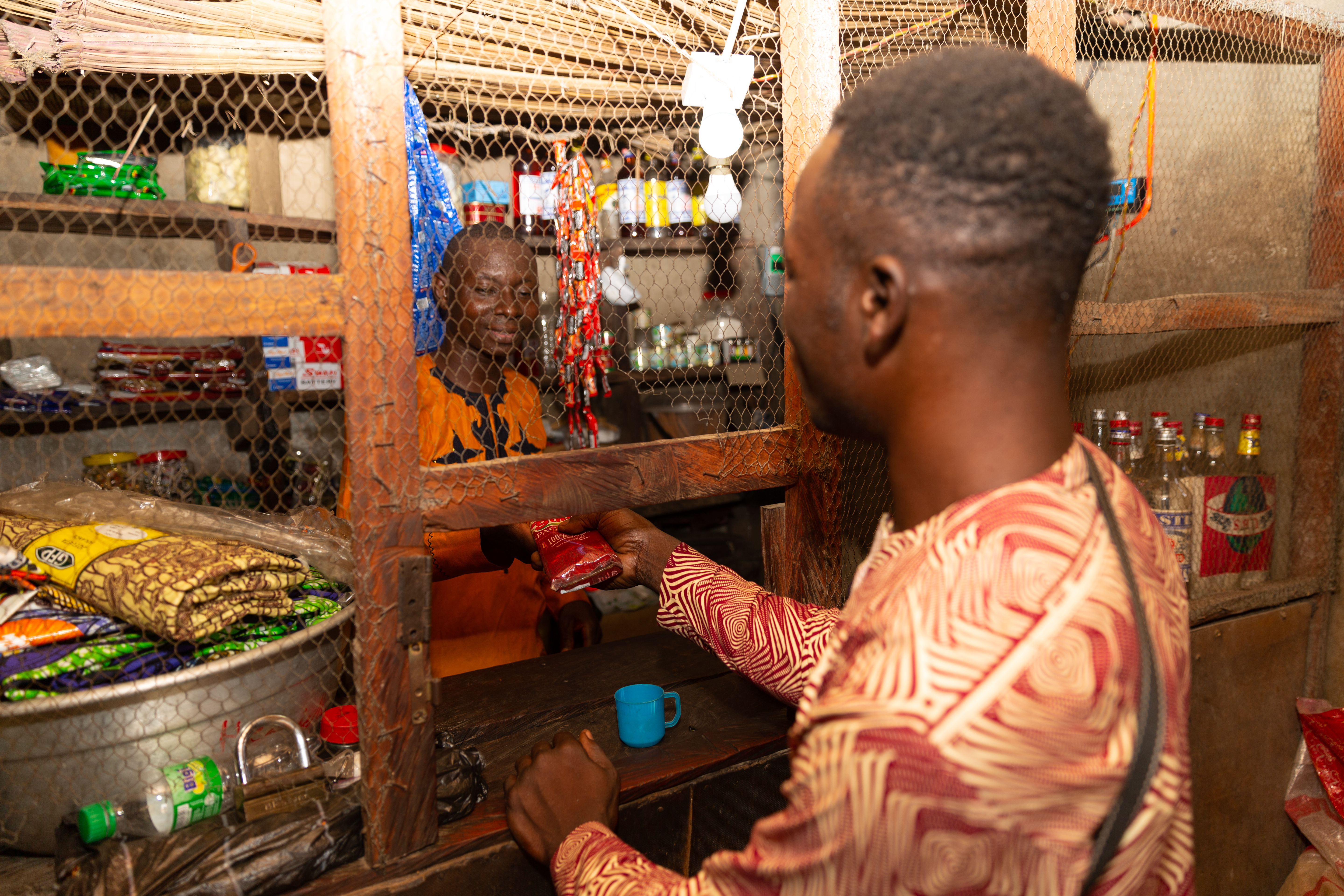
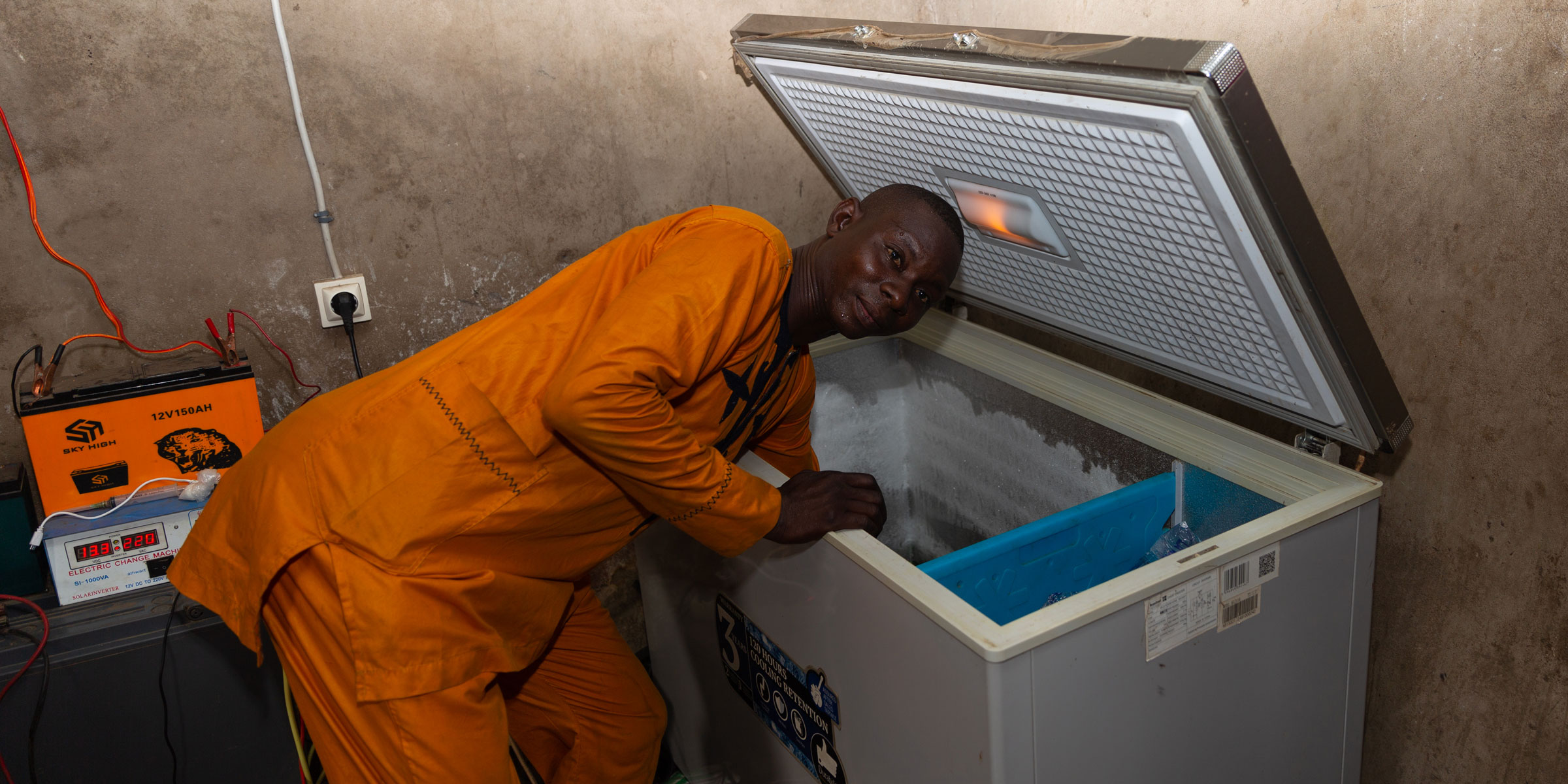
Andrew Ladson, MCC
Business owner Marcel Ilassa Chabi, seen here with his family, runs a shop in his village that benefitted from a new mini-grid solar system.
The result: more than 185,000 people now have electric power in their homes or businesses, many for the first time. An additional 110,000 people are expected to benefit from the construction of 55 solar mini-grids across the country by the end of the year. These investments are the largest that the U.S. has made to date in off-grid electrification in a single country and will enable the delivery of water and other essential public services, provide businesses the confidence to make new investments, allow children to study in the evenings, permit women and girls to walk home safely at night, and clinics to refrigerate vaccines and enhance nighttime patient care.
For example, the U.S. company Energycity will electrify 17 rural communities via solar mini-grids. Electricity produced by these mini-grids will meet domestic household needs and bring clean power to businesses and public service providers.
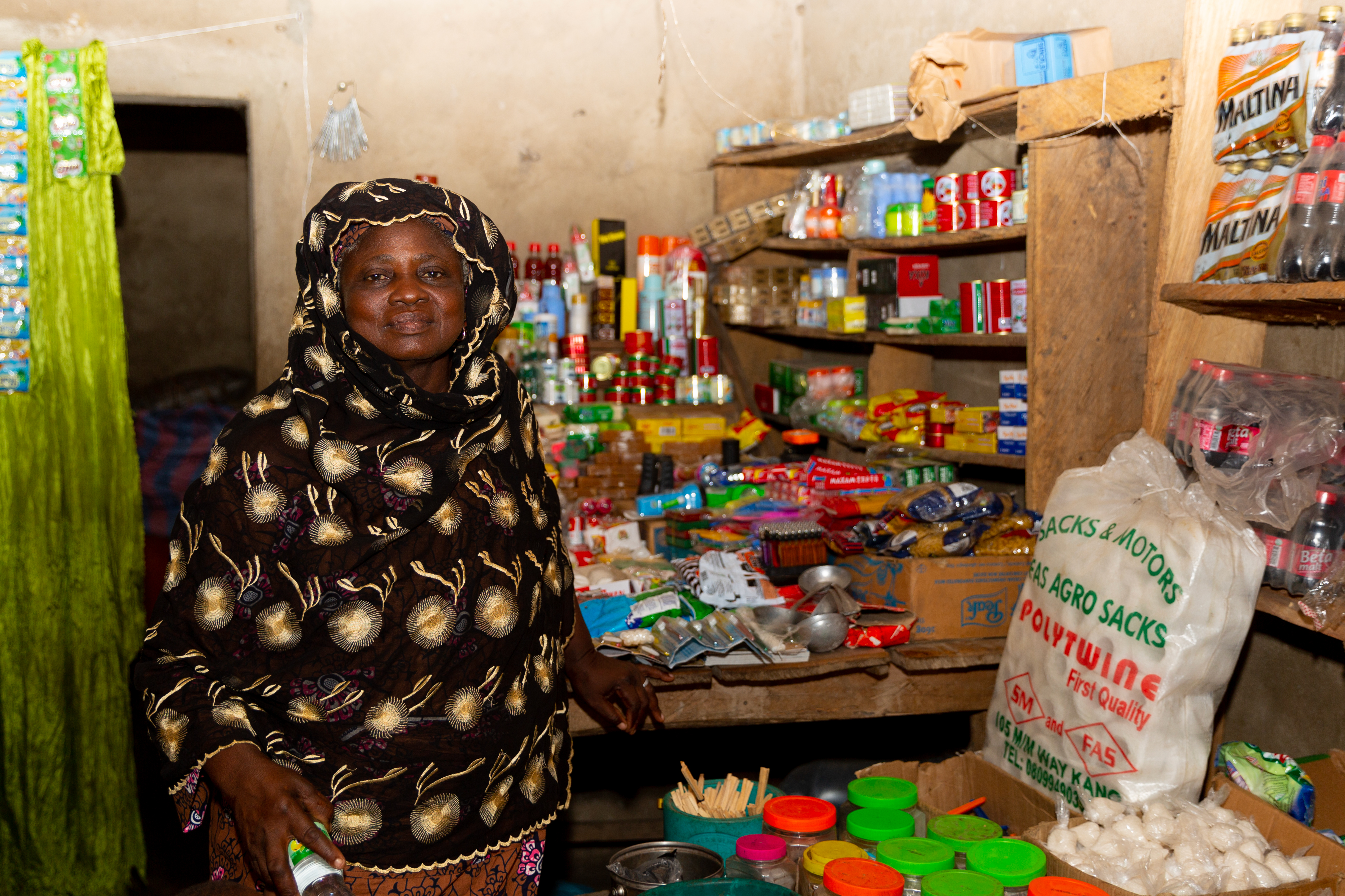
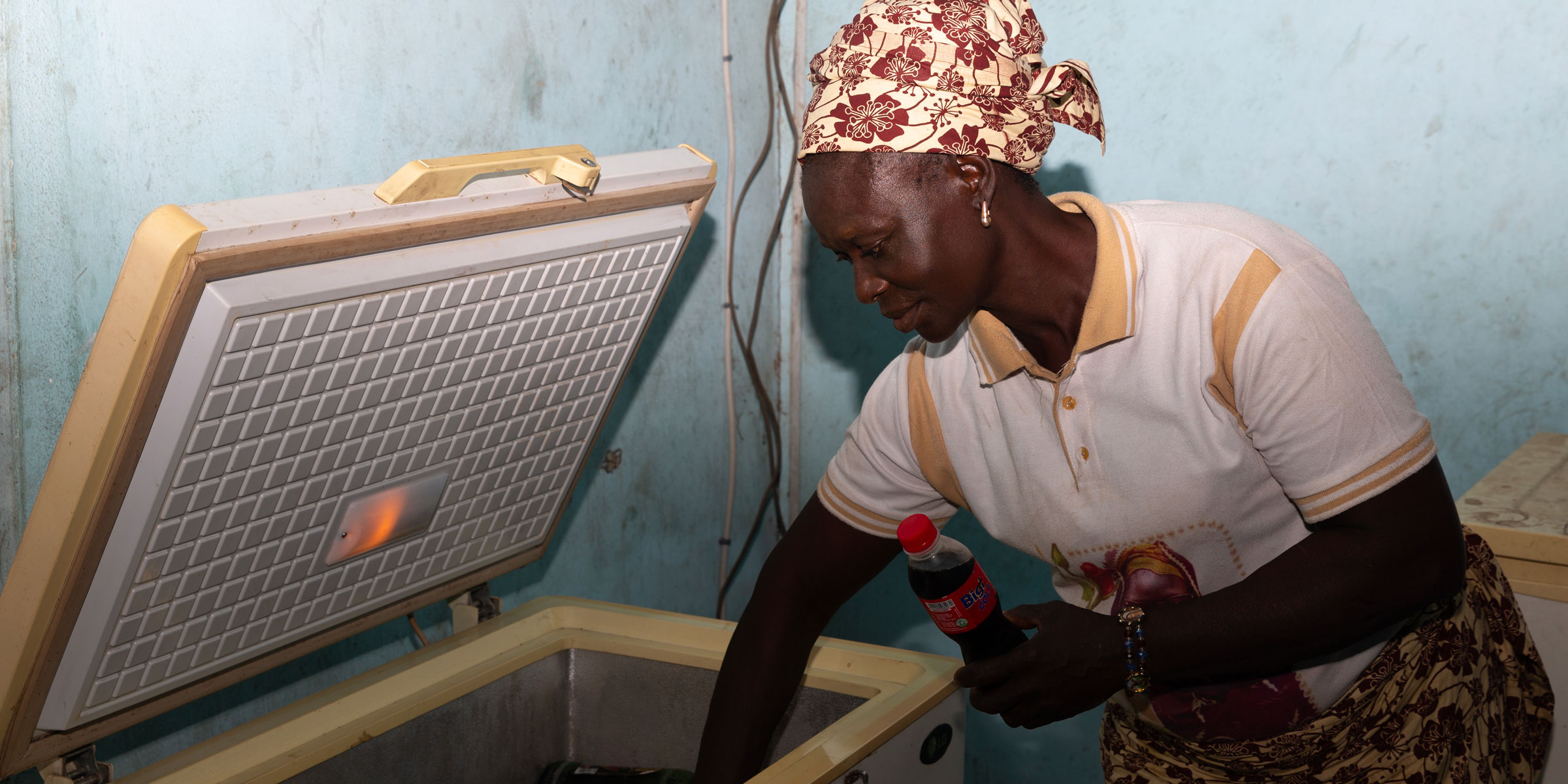
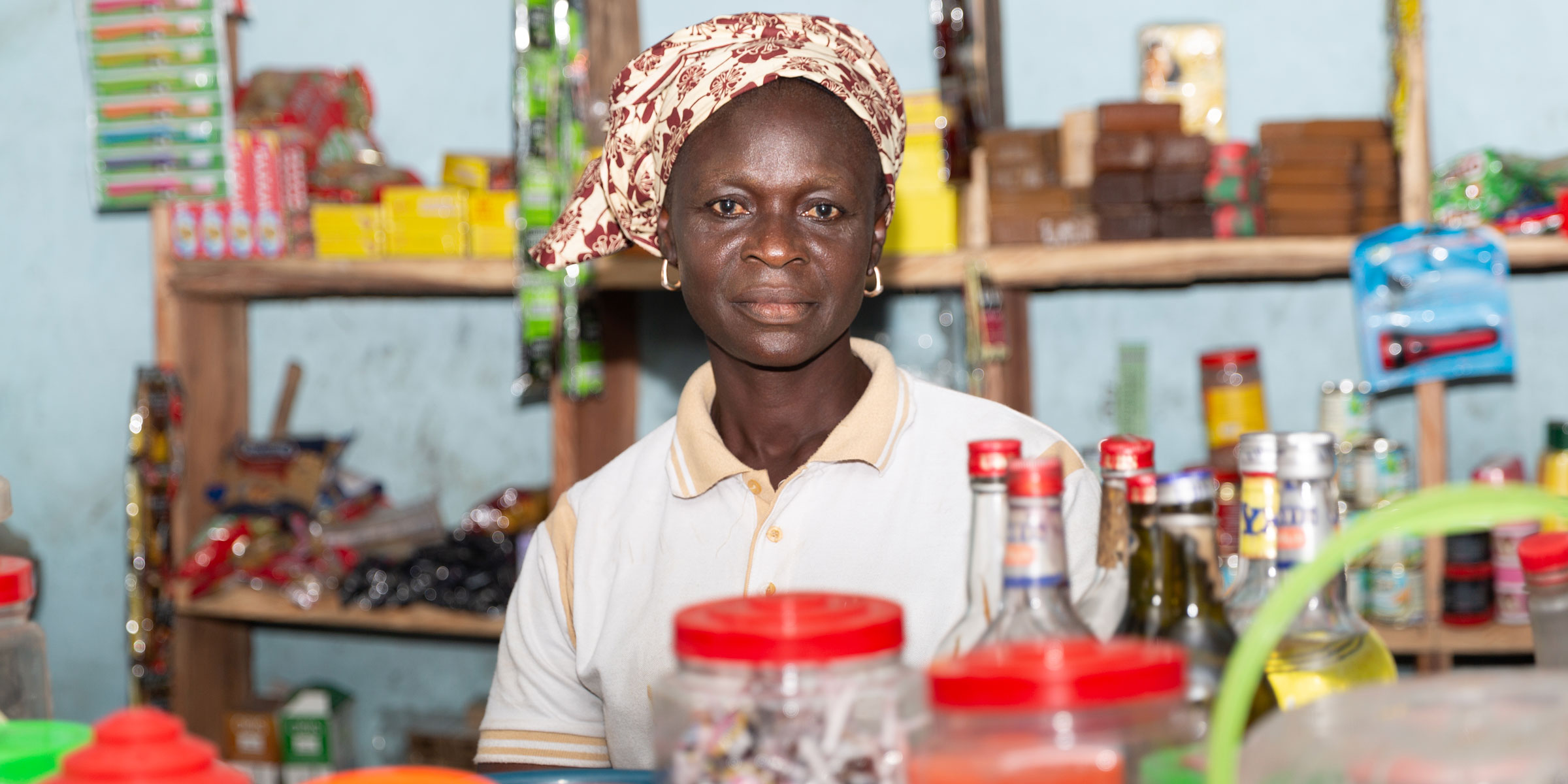
Andrew Ladson, MCC
Boutique owner Ms. Tayewo (top left) and café owner Émiline Dion share their businesses, which also benefitted from a new mini-grid solar system.
The company Lagazel partnered with MCC to open Benin’s first solar lamp assembly plant. The company in turn has partnered with NGOs to distribute high-quality solar lamps made in Benin to vulnerable populations. In May 2022, Lagazel distributed solar lamps and kits in central Benin, enabling 480 widows and 170 students to benefit from quality lighting powered by the sun to replace costly and noxious kerosene lamps.
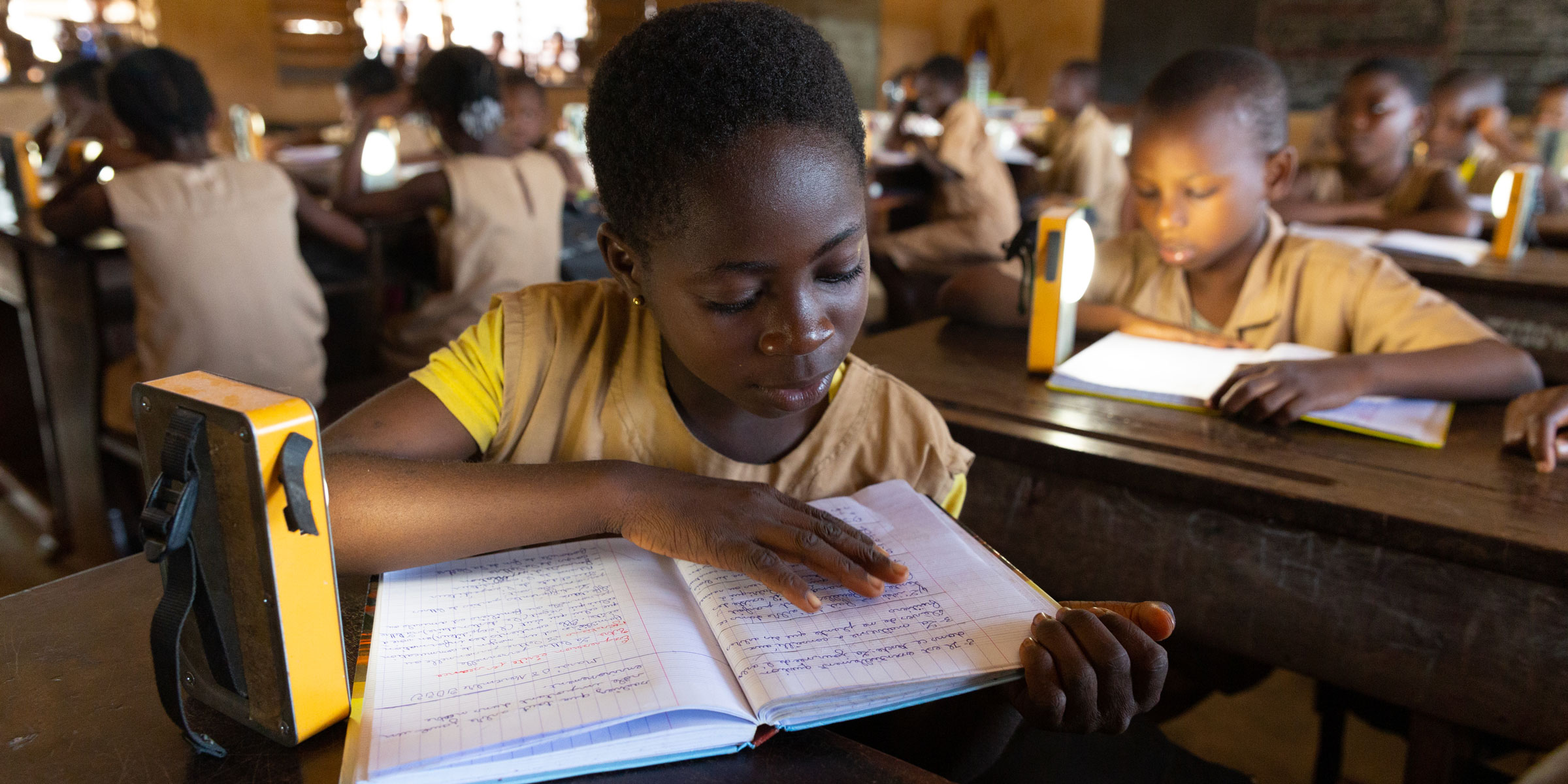
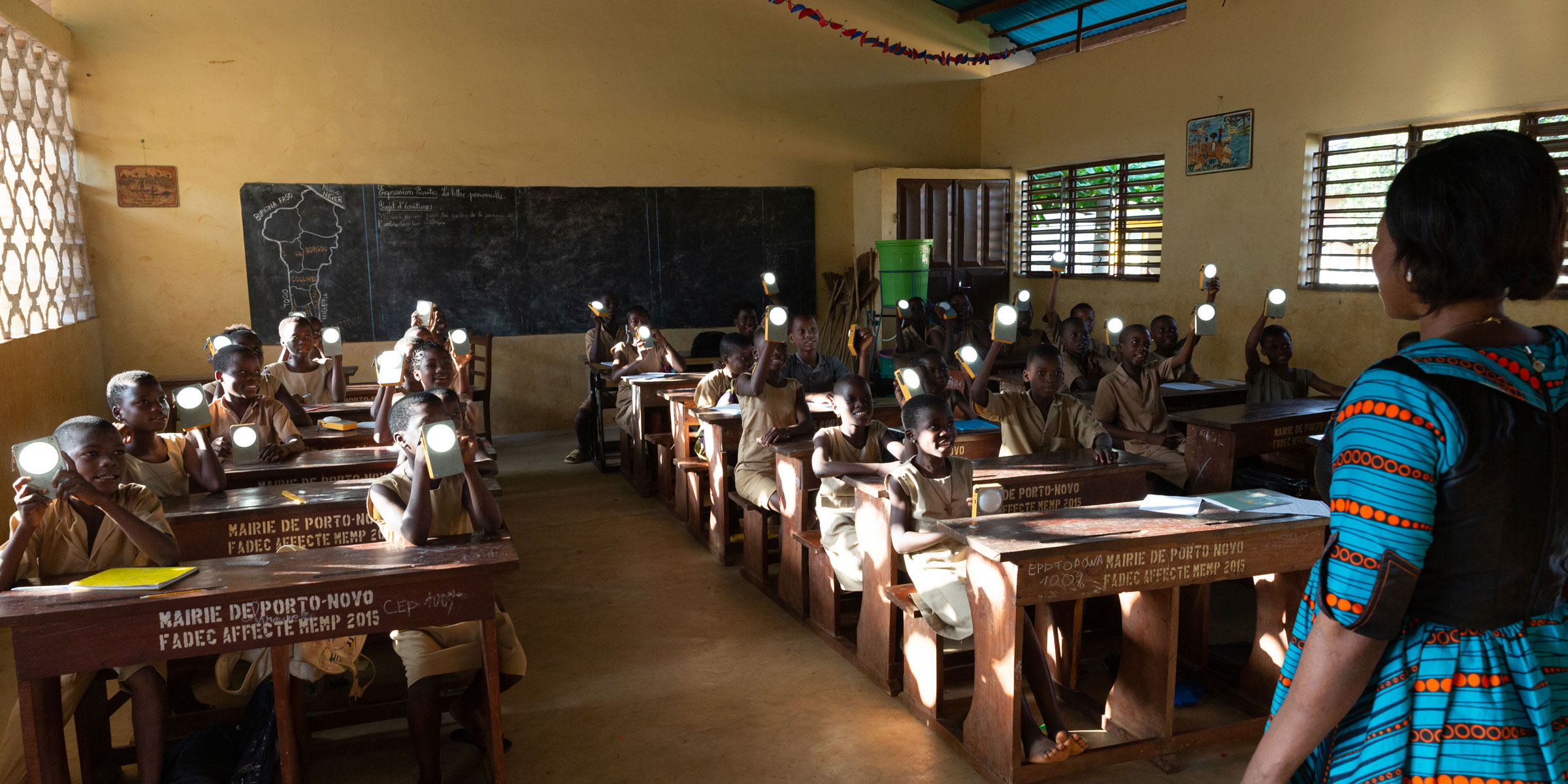
Andrew Ladson, MCC
Students at Towada Primary School are instructed in the use of solar-rechargeable LED lights, which they are issued to help continue their studies in the evenings.
The use of these solar lamps and kits will not only encourage parents to send their children to school but will also reduce gender inequalities by giving women entrepreneurs the opportunity to use adequate lighting and processing equipment to open or expand their own businesses. When children and young people have access to solar lighting, it allows them to study their homework lessons late into the night.
Moreover, the use of solar power is a powerful tool in reducing carbon emissions. Lagazel’s objective is to sell more than one million solar kits to unconnected populations in rural and peri-urban areas within five years.
Energy = Strengthening Climate Resiliency
Africa has vast renewable energy potential. In Benin, MCC recognized the opportunity to increase economic growth and reduce poverty while tackling the climate crisis through renewable power generation.
Through the compact, the Government of Benin adopted its first framework to attract private sector investment in power generation. MCC then supported the preparation of a competitive international tender for 50 MW of solar photovoltaic power generation, spread across four sites. When built, these plants will make a major contribution to Benin’s power grid, producing power at nearly half the price of competing thermal sources, while reducing the country’s reliance on external electricity suppliers.
Energy efficiency is a cost-effective way to combat climate change. To avert needless greenhouse gas emissions and deliver savings for utility customers, MCC supported Benin’s adoption of nationwide energy efficiency standards and labels for air conditioners and light bulbs, and 30 energy efficiency audits of large public buildings and industrial consumers.
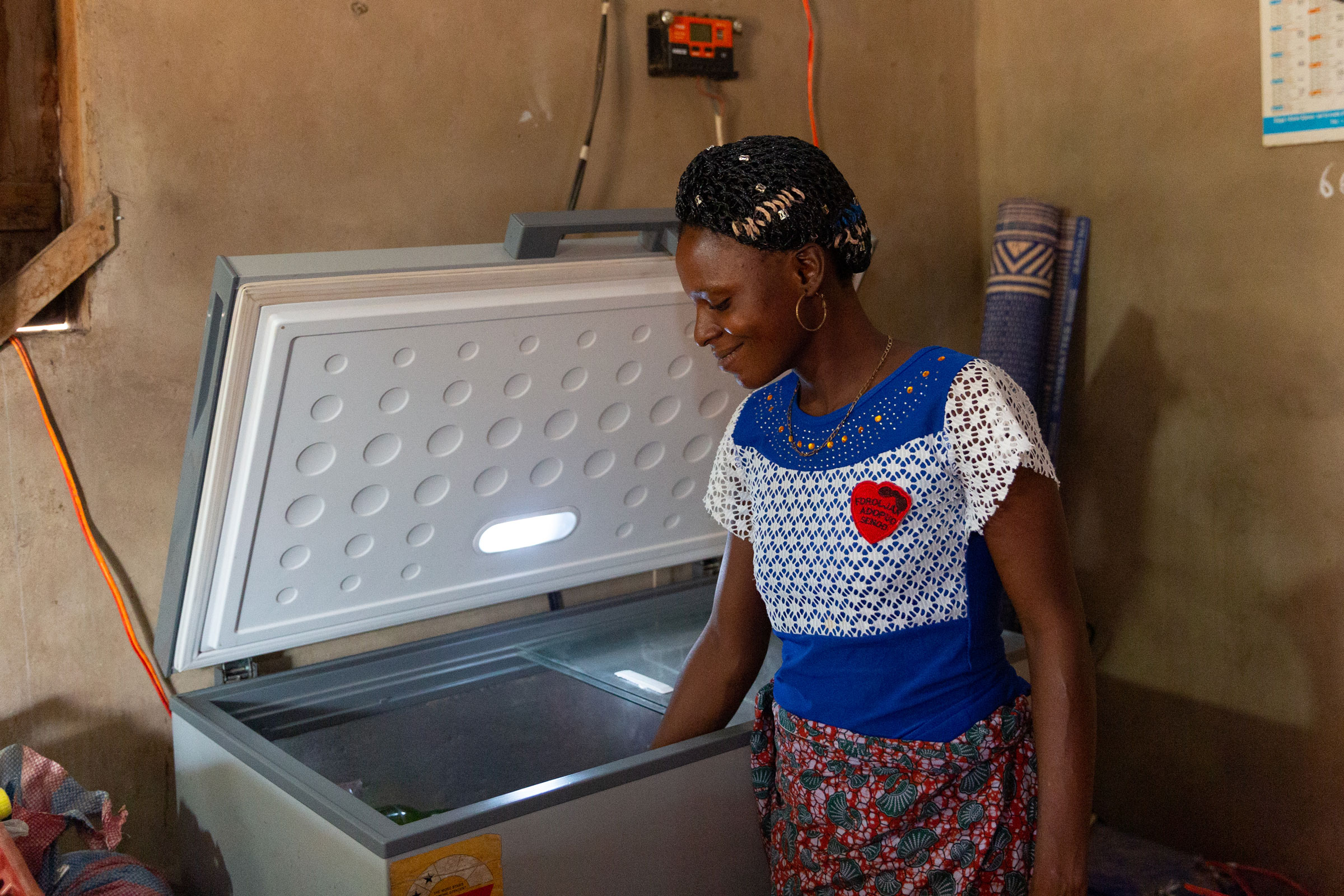
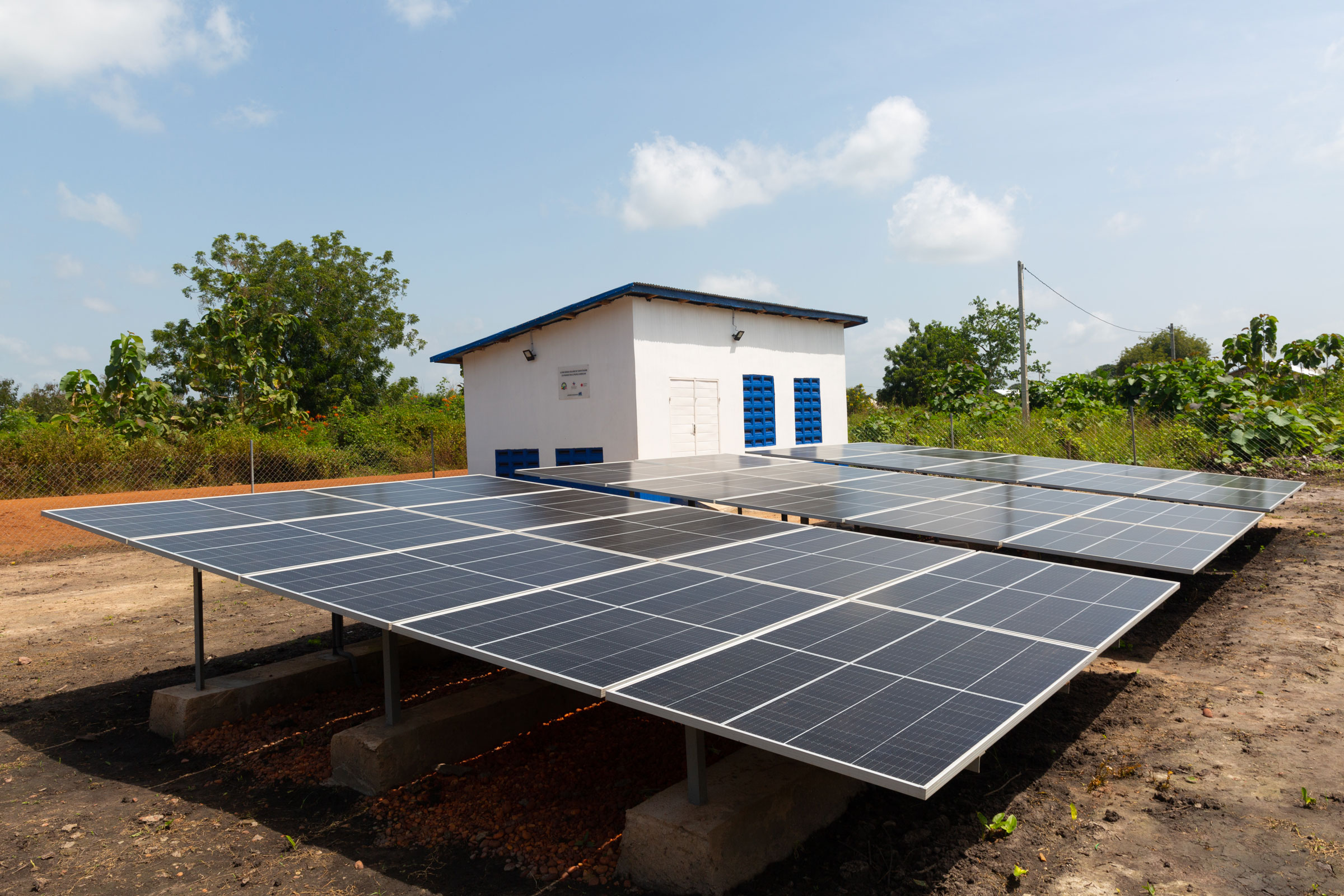
Andrew Ladson, MCC
Rosine Fanbo, a merchant in Takpatchiome Village, displays the cold storage for inventory inside of her place of business. Her business is benefitting from the village’s new solar mini-grid system.
Energy = Policy Reforms
Ensuring the future of Benin’s energy sector required strengthening energy regulations, tariff reforms and new policy and institutional frameworks.
In 2020, the Government of Benin approved and implemented an average 15 percent electricity tariff increase to better align the price of power with the cost of service. MCC also supported a four-year management contract for Benin’s power distribution utility that has delivered financial, commercial, technical and human resource improvements to the operations of Benin’s national power distribution utility.
Energy = a Brighter Future for Women
Investing in Benin’s growth requires empowering women to play a leading role in the country’s economy.
MCC supported women-owned businesses through training and mentoring in business and management skills as well as support for energy efficiency. These interventions led to stronger sales, reduced energy costs, new business, geographic expansion, and new funding opportunities. The program also supported the women business owners to create a network of mutual support for business opportunities, government recognition, and support from other donors.
-
Spotlight:
Irene Pazou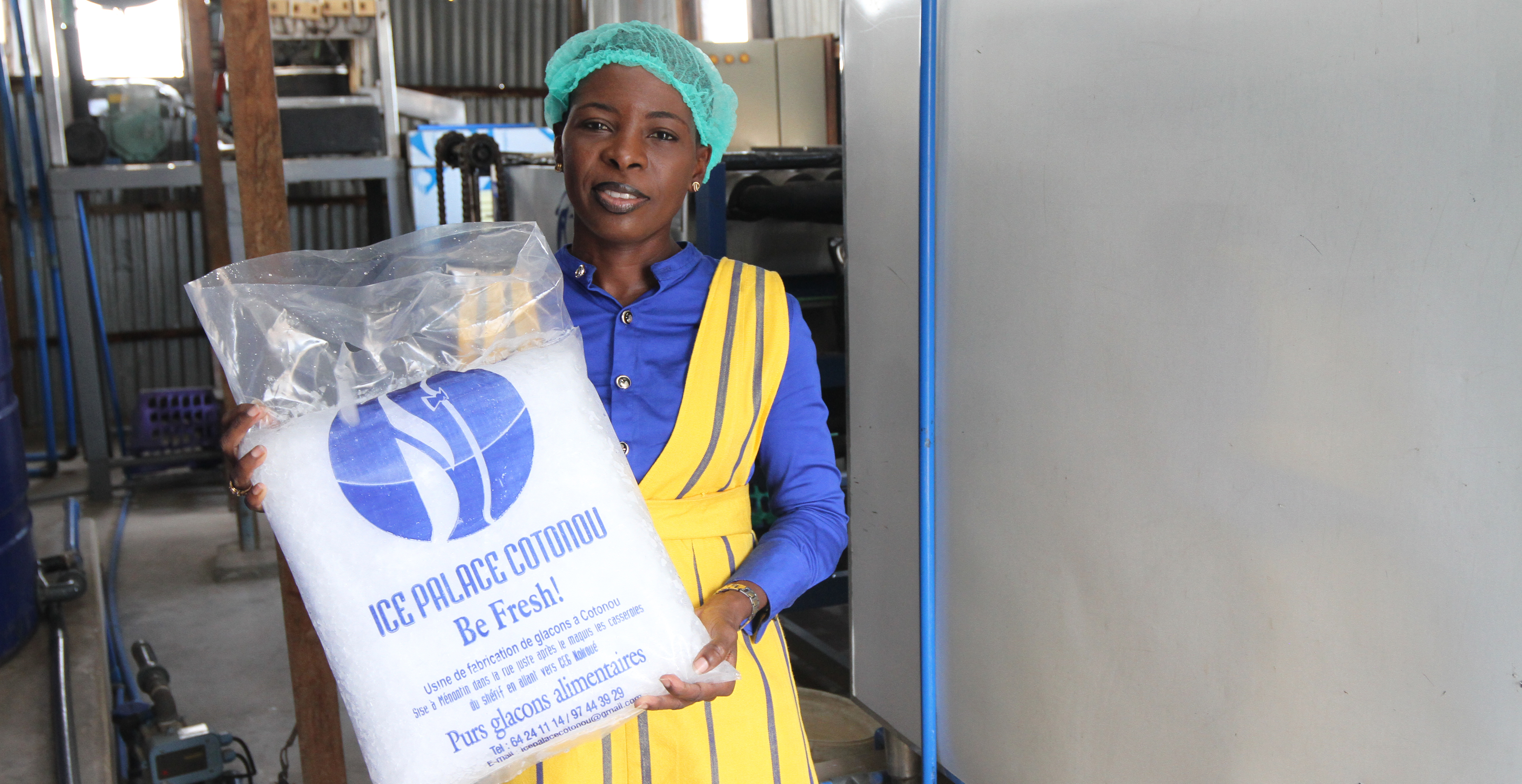
When Irene Pazou opened her business, Ice Palace, in 2017, she knew there was an unmet need for quality clean ice products for use in the food industry. What she didn’t count on were all the challenges facing women entrepreneurs, particularly those whose success depends on a stable energy supply.
-
Spotlight: Ismène Ahamide Zounmenou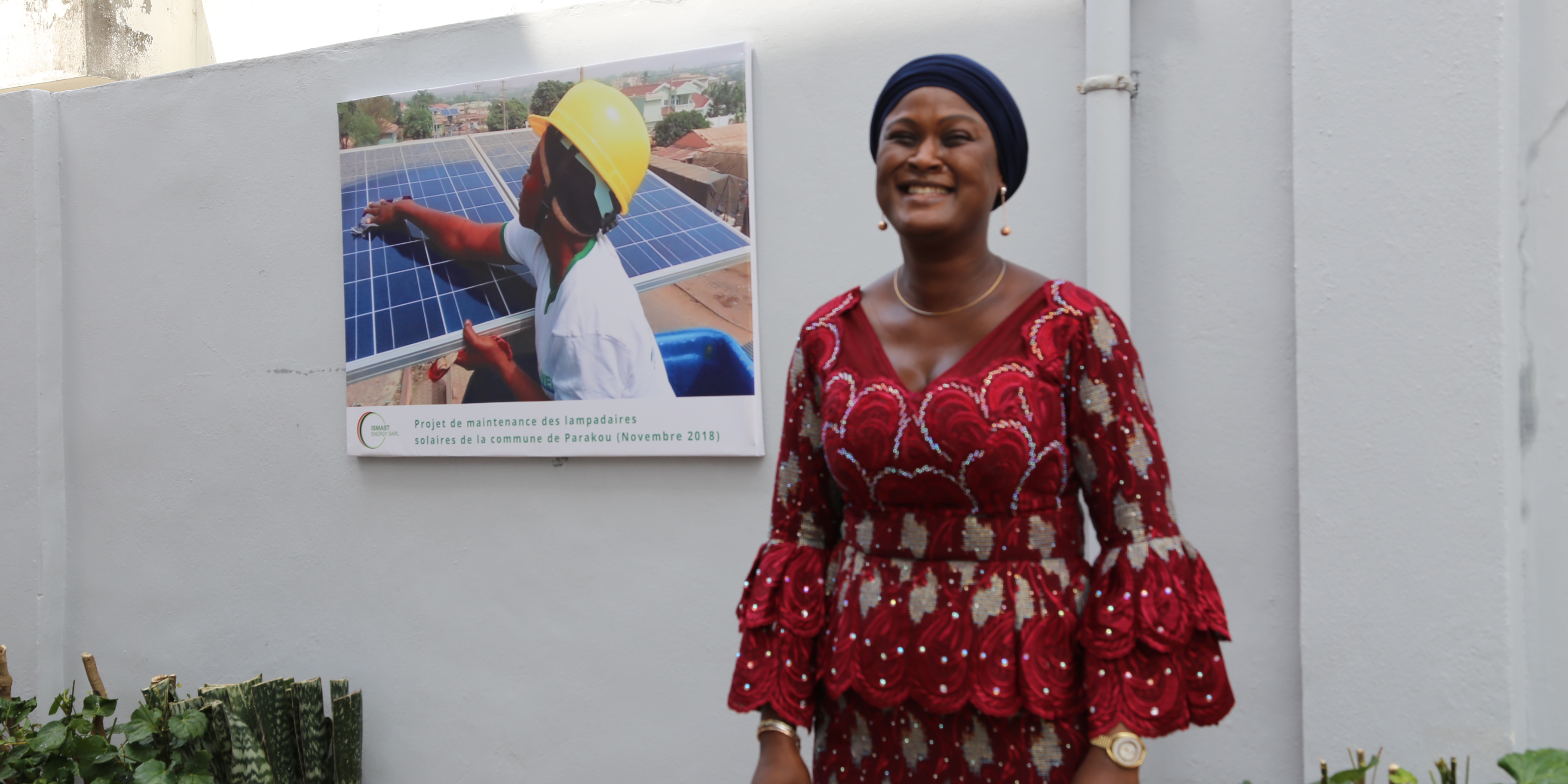
MCC’s Benin Power Compact introduced the Women’s Energy Entrepreneurs Program, which supported woman-owned, or managed businesses that are either working in the energy sector or use electricity as part of their business. MCC beneficiary Madame Ismène founded Ismat Energy LLC, one of a few woman-owned renewable energy product supply companies in Benin.
Investing in a Brighter Future for Benin
MCC is proud to have partnered with the Government of Benin to strengthen the national power grid, improve utility management, attract private sector investment into solar power generation, and by bringing power to rural and underserved communities. Together we have built a foundation for a brighter, more equitable, and sustainable future in Benin.
MCC looks forward to continuing its partnership with the Government of Benin through the Benin-Niger Regional Transport Compact, a $504 million grant with Benin and Niger to improve the trade corridor between the Port of Cotonou, Benin and the capital city of Niamey, Niger – $202 million of which will be implemented within Benin.

